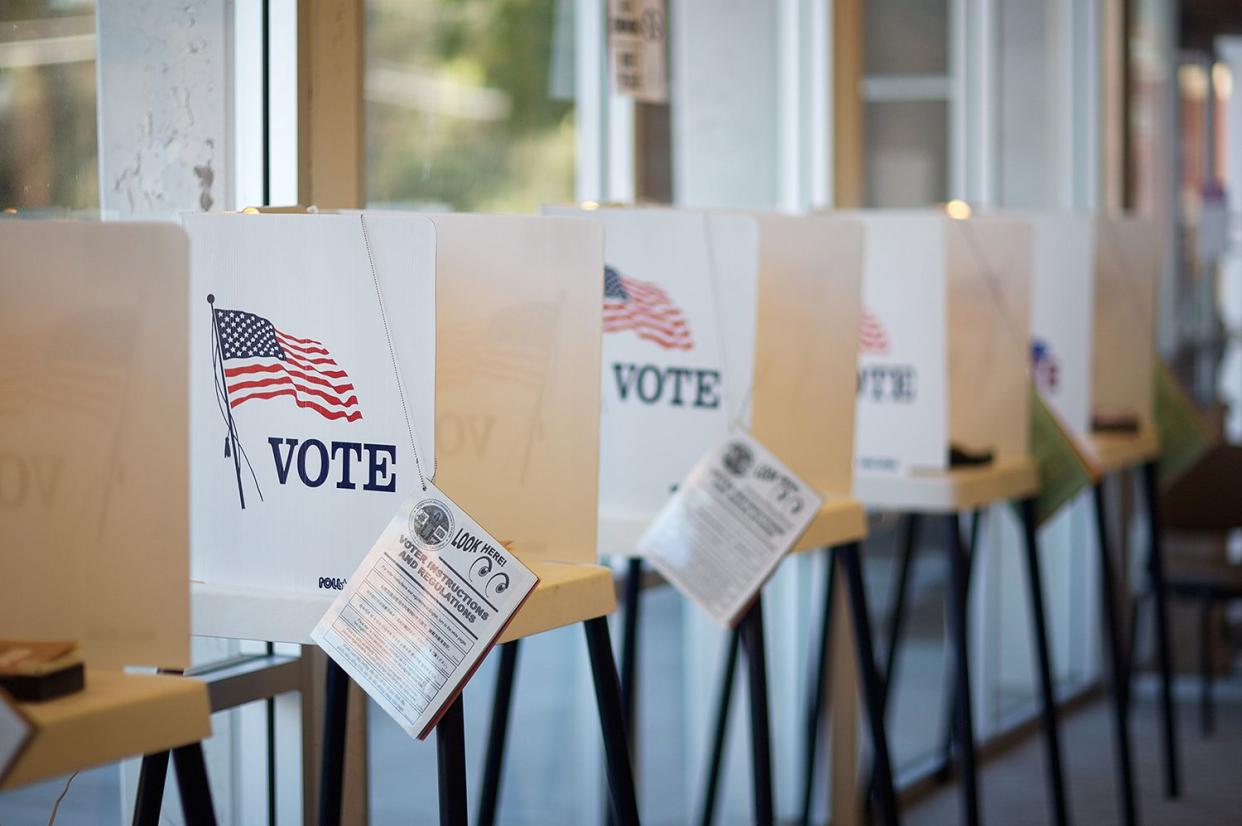Some Midterm Races May Not Be Called on Tuesday — Here's Where We Anticipate Late Results

Getty A polling place in California
All eyes are on the midterm elections, which will determine what parties control the U.S. House and Senate. But even as television network anchors prepare for a long night of vote-counting, Americans likely won't know the results of all the elections on Tuesday.
In fact, some of the most hotly contested races — including those in Arizona, Nevada and Pennsylvania — could require multiple days of vote-counting for a variety of reasons.
Some MAGA Republicans have signaled that they might not accept election results if vote-counting comes too late, claiming that late election results signify something nefarious. But the reality is that vote-counting is in some cases legally required to begin only after all the ballots have been received.
In Pennsylvania, for instance, officials are not allowed to begin processing absentee ballots until Tuesday morning — a process that will require removing thousands of ballots from their envelopes and individually scanning them.
"By the way, counting slow does not mean broken," CBS Evening News anchor Norah O'Donnell told PEOPLE in a recent interview. "That's the way the Republican legislature in Pennsylvania wanted it, to count slow, because they have to count mail in ballots on Election Day."
Speaking to reporters via Zoom this week, Pennsylvania's acting Secretary of State Leigh Chapman asked for "patience."
"Official results will be available within a few days," Chapman said, adding that even unofficial results likely wouldn't be available on Election Day, ABC 6 reported. "This delay does not mean anything nefarious is happening. It simply means that the process is working as it is designed to work in Pennsylvania and that election officials are doing their job to count every vote."
While Pennsylvania officials are not allowed to begin processing absentee ballots until Tuesday morning, there will likely be far fewer absentee ballots to process than there were during the 2020 presidential election. The Philadelphia Inquirer reports that most counties estimate they will be finished counting by Wednesday morning.
The state is home to one of the most talked-about Senate races in 2022: a matchup between Democratic Lt. Gov. John Fetterman and MAGA-supporting celebrity doctor Mehmet Oz.
Fetterman, who had the strong advantage in the race from day one, saw his wide lead slowly shrink in recent weeks as the election drew near, with Oz officially surpassing him in polling averages for the first time this week.
RELATED: 2022 Midterms: Every Senate, House and State Race Americans Should Follow
In Georgia — the site of another close Senate race — a new election law allows counties more time to process absentee ballots, but also requires them to finish counting all votes by 5 p.m. ET on Wednesday.
Georgia saw historic delays in 2020, largely due to the number of absentee ballots cast amid the pandemic.
The state has already seen record-shattering early voter turnout among those eager to weigh in on both a gubernatorial race and the race for Senate, which pits incumbent Democrat Rev. Raphael Warnock against former NFL player Herschel Walker.
In Arizona, Secretary of State Katie Hobbs — who is currently running for governor against MAGA Republican Kari Lake — has already said election results are not going to be known on Tuesday.
"As much as we all want to see the winner on election night in those close races, that's just not going to happen," Hobbs said in October, as reported by KTAR News. "We are focused on being accurate. We will be accurate. … These things take time."
RELATED: Here's What to Expect from Election Night Coverage on All the Major Networks
Nevada is also likely to see delays in its vote-counting, due in part to rules requiring election workers to wait until the polls close to begin counting absentee ballots (and so long as they are postmarked by Nov. 8, those ballots have until Nov. 12 to pour in).
Alaska may be the last state to announce its official elections, due to its ranked-choice voting method. With ranked-choice, if no candidate wins the majority, the candidate with the fewest votes is eliminated, with the process continuing until two candidates are left and the one with the most votes wins.
Check your voter registration, locate your polling place, and make a voting plan at Vote.org to ensure that your voice is heard this election season.

